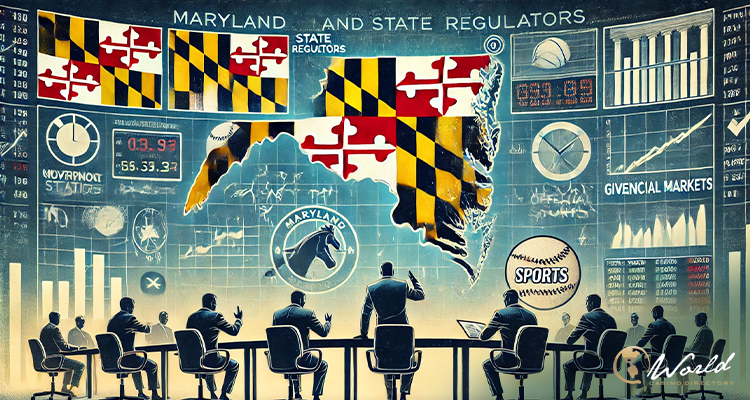Maryland’s top gaming authority has ordered three major financial trading platforms to immediately stop offering sports-based contracts that resemble unlicensed sports betting. On Monday, the Maryland Lottery and Gaming Control Commission (MLGCC) issued cease-and-desist directives to KalshiEX, LLC, Robinhood Derivatives, LLC, and North American Derivatives Exchange, Inc., which operates under the Crypto.com brand. The Commission argues these companies have been facilitating online markets based on sporting event outcomes — an activity deemed indistinguishable from sports wagering and thus illegal under state law.
According to MLGCC [pdf], the platforms’ sports prediction markets operate in violation of Maryland’s State Government Article §9–1E–01, which restricts sports betting to officially licensed providers. Unlike authorized sportsbooks, these trading companies have not undergone Maryland’s licensing process, nor do they comply with consumer safeguards such as age and identity verification or geolocation requirements to ensure bets are placed within state lines by users aged 21 or older.
“This is both a legal and a consumer protection issue, and there’s also a financial stake for the State,” explained John Martin, Director of Maryland Lottery and Gaming, quoted by Nottingham.MD.com. “Each of Maryland’s legal sports wagering operators completed a rigorous licensing process and is subject to extensive regulations that include responsible gaming requirements. The commodity traders aren’t bound by those same guardrails. They’re conducting sports wagering without a license, and in doing so, they’re avoiding the collection of sports wagering taxes that legal operators pay to the State.”
Unlicensed Operators Dodge State Oversight and Tax Contributions
The MLGCC emphasized that the legal structure surrounding sports wagering in Maryland is designed to ensure fairness, transparency, and public accountability. Licensed sportsbooks in the state contribute 15% of their taxable revenue to the Blueprint for Maryland’s Future Fund, which provides funding for public education initiatives. In the current fiscal year alone — from July 2024 to February 2025 — this revenue stream has generated close to $61.2 million, bringing the cumulative total since December 2021 to nearly $150 million.
By contrast, the trading platforms cited in the cease-and-desist letters have not contributed any such tax revenue, despite offering similar betting-style services. The Commission contends that these unregulated prediction markets are effectively operating as shadow sportsbooks, bypassing the legal framework established to protect consumers and support state-funded programs.
Maryland Joins National Trend in Cracking Down on Prediction Markets
Kalshi, Robinhood, and Crypto.com are not new to regulatory scrutiny. They have made sports prediction contracts available to users across the U.S., and Maryland is now the sixth state to intervene. Other states that have previously taken action include New Jersey, Nevada, Ohio, Illinois, and Montana, each expressing concerns over how these services mirror regulated sports gambling without proper oversight.
The MLGCC reiterated that under current Maryland law, only two types of real-money online gaming are allowed: sports betting through licensed operators and fantasy competitions offered by registered providers. All other forms, including contracts that rely on the outcome of sports events but masquerade as financial products, are not legally permitted in the state.
To maintain transparency, Maryland Lottery and Gaming maintains an up-to-date list of licensed sports betting platforms and registered fantasy operators on its official website. It also publishes copies of all cease-and-desist letters issued to companies believed to be operating unlawfully. These include a wide range of platforms, from lesser-known sites like Zula and Stake.us to more prominent names like Kalshi and Crypto.com.



